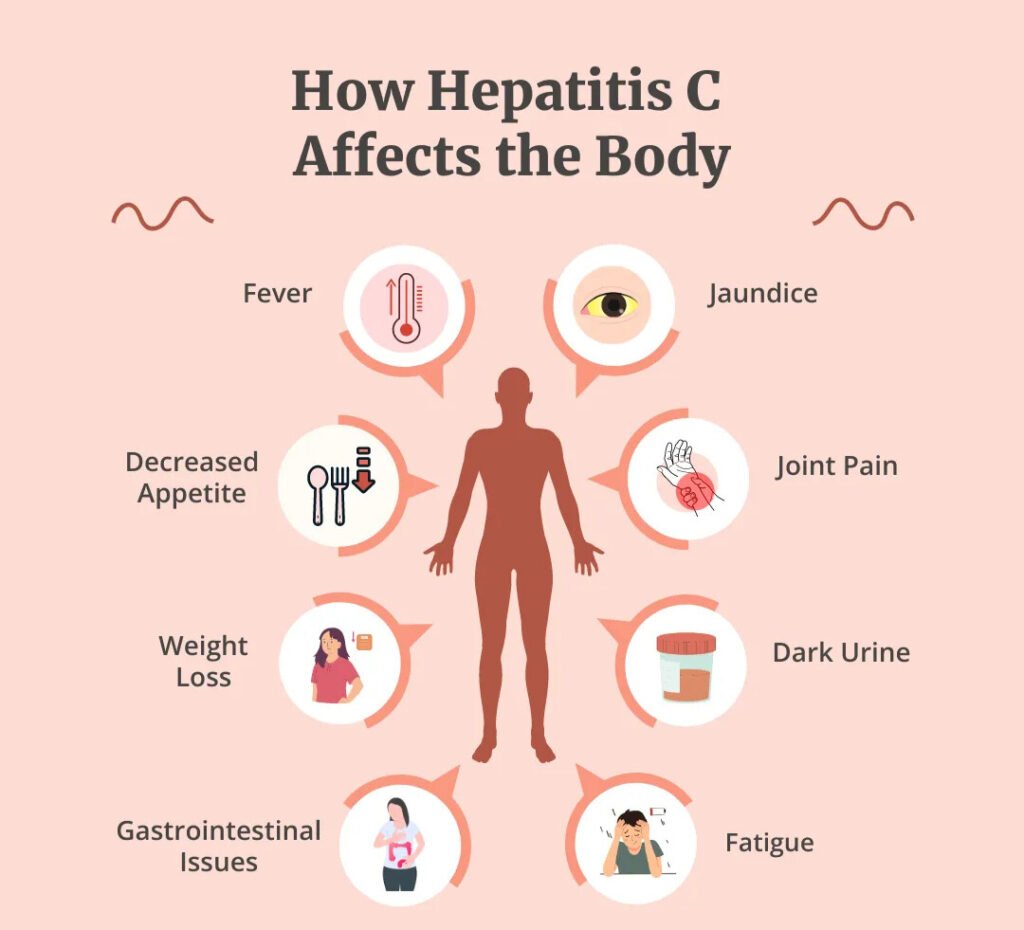Hepatitis C (HCV)
Hepatitis C Overview
Hepatitis C is a viral infection that causes inflammation of the liver and, over time, can lead to serious liver damage. The virus (HCV) spreads primarily through contact with infected blood.
Many people with hepatitis C are unaware they have the infection because symptoms often take decades to appear. This makes screening especially important.
The U.S. Preventive Services Task Force recommends that all adults aged 18 to 79 be screened for hepatitis C, regardless of symptoms or known liver disease.
The good news is that modern antiviral medications are highly effective and can often cure chronic hepatitis C.
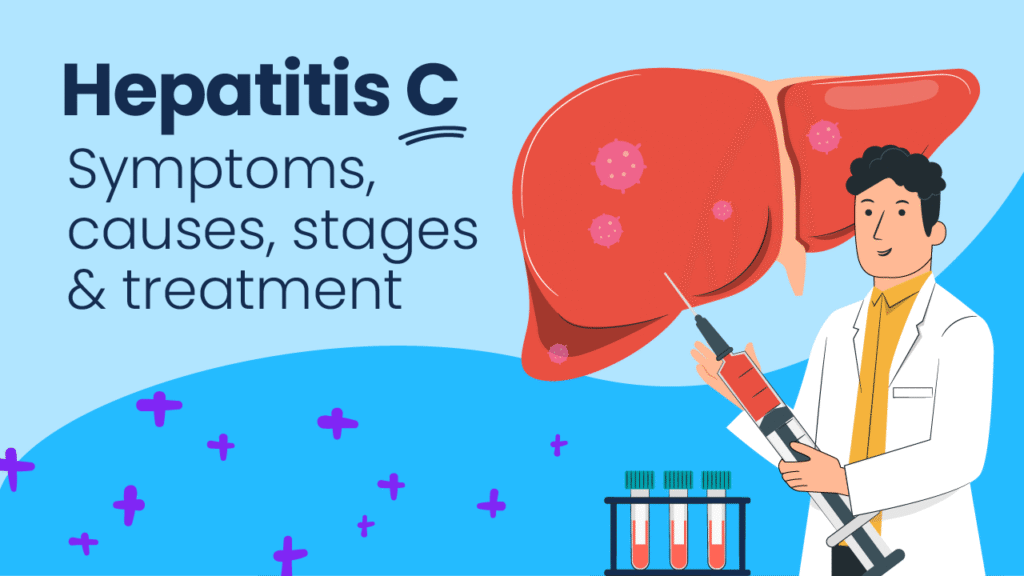
Hepatitis C Symptoms
Every long-term hepatitis C infection begins with an acute phase. This early stage is rarely diagnosed because it usually causes no symptoms. When symptoms do occur, they may include:
Jaundice (yellowing of the skin and eyes)
Fatigue
Nausea
Fever
Muscle aches
If the infection does not clear, it can progress to chronic hepatitis C, which often remains silent for years. Symptoms typically appear only after significant liver damage has occurred. These may include:
Easy bleeding or bruising
Persistent fatigue
Loss of appetite
Yellowing of the skin (more noticeable in lighter skin tones) and eyes (across all skin tones)
Dark urine
Itchy skin
Fluid buildup in the abdomen (ascites)
Swelling in the legs
Unexplained weight loss
Confusion, drowsiness, or slurred speech (hepatic encephalopathy)
Spiderlike blood vessels on the skin (spider angiomas)
Not all acute hepatitis C infections become chronic. In some cases, the body clears the virus naturally — a process called spontaneous viral clearance. Antiviral therapy can also successfully eliminate the virus, even in the acute phase.
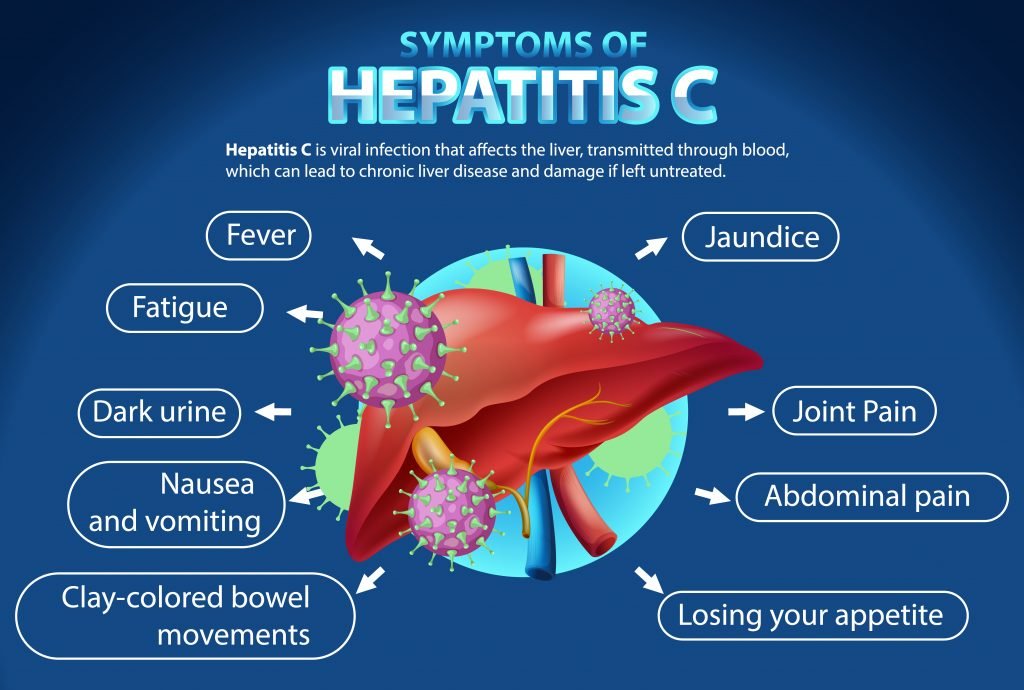
Causes
Hepatitis C infection is caused by the hepatitis C virus (HCV). The infection spreads when blood that has the virus enters the bloodstream of a person who isn’t affected.
Around the world, hepatitis C infection exists in several forms, called genotypes. There are seven genotypes and 67 subtypes. The most common hepatitis C genotype in the United States is type 1.
Chronic hepatitis C follows the same course no matter what the genotype of the infecting virus. But treatment can vary depending on viral genotype. However, newer antiviral drugs can treat many genotypes.
Risk Factors
Who Should Be Screened for Hepatitis C
The U.S. Preventive Services Task Force recommends that all adults aged 18–79 years undergo hepatitis C screening. Screening is especially important for people at higher risk of exposure, including:
People who use drugs
Anyone who has ever injected, snorted, or inhaled illegal drugs.
Abnormal liver tests
Anyone with atypical liver test results where the cause is unknown.
Children born to infected mothers
Babies born from someone who has hepatitis C.
Pregnant individuals
All pregnant people during pregnancy.
Healthcare and emergency workers
Those who have been exposed to blood or stuck by a needle.
People with hemophilia
Especially if treated with clotting factors before 1987.
People on long-term hemodialysis
Recipients of blood or organ transplants
Those who received donated blood or organs before 1992.
Sexual contacts of infected individuals
People with HIV infection
Men who have sex with men
Sexually active people starting HIV prevention medicine (PrEP)
Incarcerated individuals
Anyone who has been in prison.
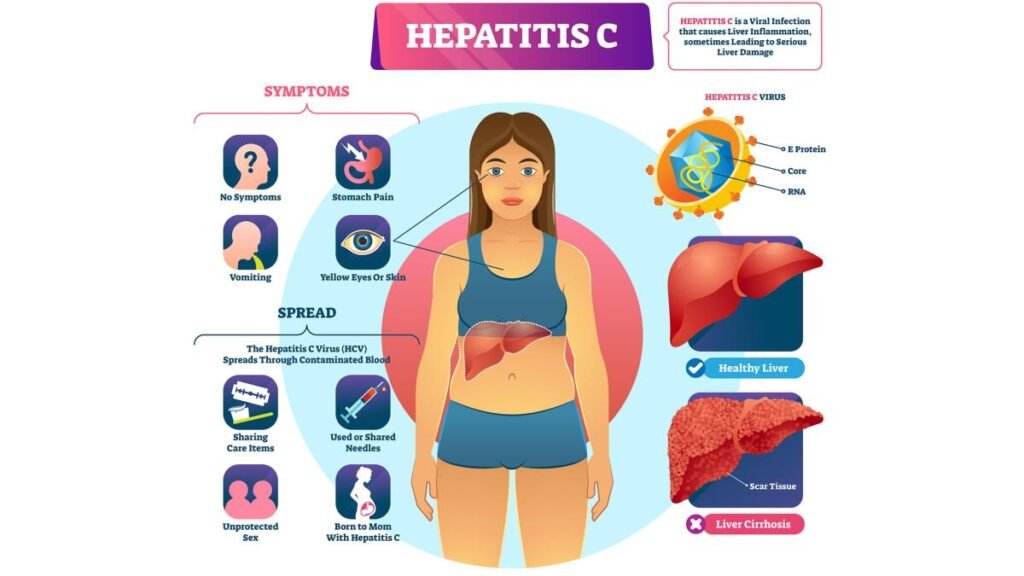
Complications
Hepatitis C infection that continues over many years can cause serious complications, such as:
- Scarring of the liver, called cirrhosis. Scarring can occur after decades of hepatitis C infection. Liver scarring makes it hard for the liver to work.
- Liver cancer. A small number of people with hepatitis C infection get liver cancer.
- Liver failure. A lot of scarring can cause the liver to stop working.
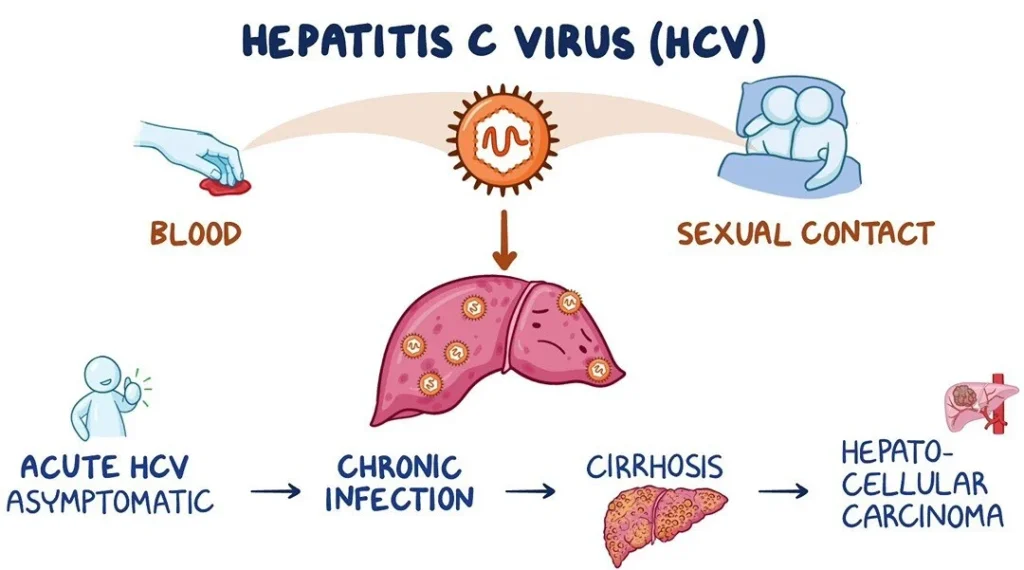
Prevention
Protecting Yourself from Hepatitis C
-
Avoid or stop using illegal drugs
-
If you use drugs, seek help to stop.
-
Avoid injecting, snorting, or inhaling drugs, as these are high-risk routes for hepatitis C transmission.
-
Be careful with body piercings and tattoos
-
Choose shops with a strong reputation for cleanliness.
-
Ask how equipment is sterilized.
-
Ensure that employees use sterile needles for each client.
-
If staff refuse to answer questions about safety, find another shop.
-
Practice safer sex
-
Use protection with any partner whose health status is unknown.
-
Limit the number of sexual partners.
-
For couples who are monogamous, the risk of transmitting hepatitis C sexually is low.
-
